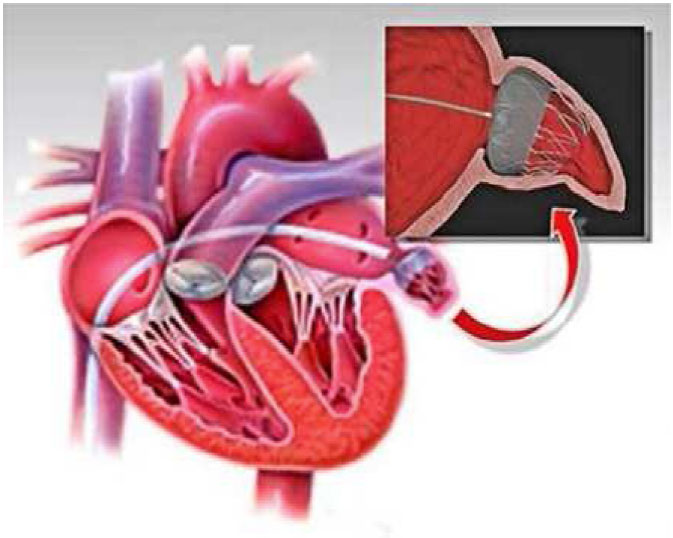Closure of the left atrial appendage (LAAC)
We use this patient information to welcome you to the Heart Clinic at Private Hospital Molholm and to provide you with information on the treatment.
The staff perceive this treatment as a routine treatment which we feel secure performing. Our staff will do their utmost to ensure that you feel safe and comfortable during your stay. Our aim is to combine professional treatment with good personal contact.
Persons with atrial fibrillation have an increased risk of suffering blod clots from the heart to the brain. 25% of all blood clots in the brain are caused by blood clots forming in the heart during atrial fibrillation, tearing away and travelling to the brain via the blood stream. By far the majority of blood clots are formed in a small “appendix” to the left atrium – the auricula.

Normally, persons with atrial fibrillation can prevent blood clots to the brain by taking a “blood-thinning” medication such as Marevan, Eliquis, Xarelto or Pradaxa. However, some do not tolerate the medicine or experience serious bleeding complications. In these circumstances, it is possible to close the left atrial appendage with a small "umbrella" which is threaded to the heart from the groin area. This closure means that blood clots cannot form in the auricula and blood clots in the brain may, thus, be prevented. This protection against blood clots in the brain and strokes is as efficient as the use of blood-thinning medicine.

The surgery itself is performed under general anaesthetic and is performed from an incision in your groin area. The surgery takes less than an hour and you will be able to return home the following day. Complications from this surgery are rare (at a total of less than 5%) and include an accumulation of blood in your groin area incision, bleeding in the pericardium (tamponade, risks of less than 1%) and the “umbrella” becoming detached (risk of less than 0,5%). These complications may be handled to prevent lasting injury. Closure of the left atrial appendage is a possible alternative to taking blood-thinning medicine – also in cases without side effect or bleeding complications.
Specialists and practitioners












